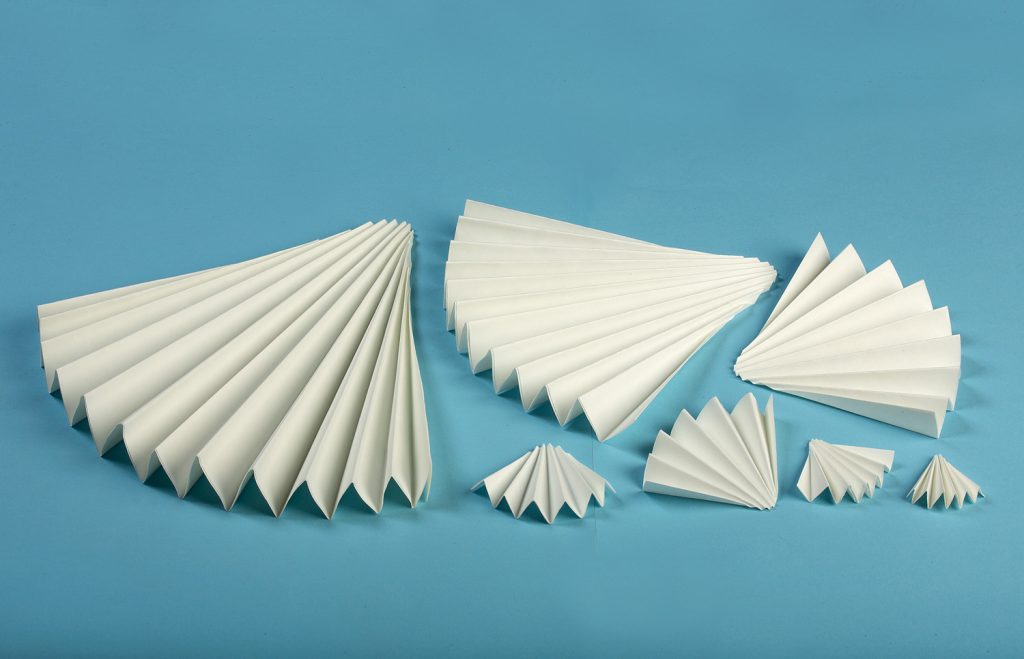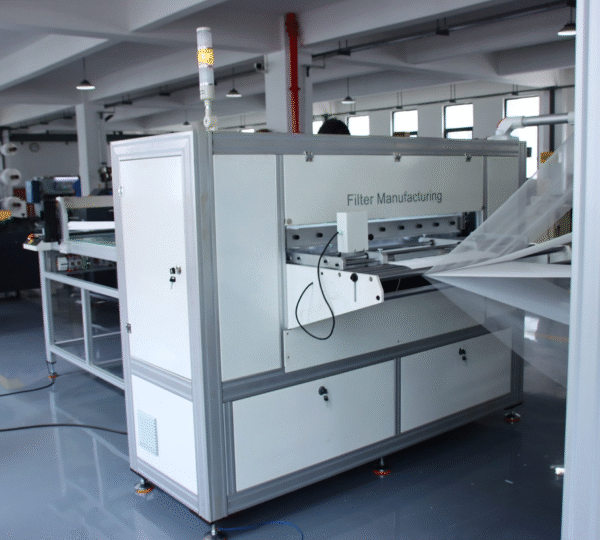HEPA filters require precise airflow control and particle capture. Their effectiveness depends on surface area and consistency. Manual pleating is slow and error-prone. A Pleating Machine for Filters automates this process, ensuring uniform folds and optimized filter performance. This machinery is critical for producing high-quality HEPA filters efficiently. Let’s explore its role in production and why it is indispensable.
Ensuring uniform pleat spacing
Consistent pleat spacing is key to filter performance. Uneven folds reduce surface area and compromise efficiency. A Pleating Machine for filter utilizes precision rollers and guides to maintain precise spacing. Consequently, each filter meets airflow and filtration specifications. Moreover, automation eliminates human error and ensures repeatability. Uniform pleat spacing enhances the filter’s capacity to capture particles effectively, thereby improving HEPA performance. Therefore, consistent folding relies on a pleating machine for filters.
Increasing production speed
Manual pleating is time-consuming and labor-intensive. In contrast, a Pleating Machine for Filter dramatically increases output. It continuously folds filter media at high speeds. This efficiency allows manufacturers to meet growing market demand for HEPA filters. Furthermore, faster production reduces lead times for clients. Companies benefit from consistent, scalable manufacturing. By speeding up pleating, the machine directly impacts productivity in HEPA filter factories. Speed and reliability are hallmarks of a pleating machine for filters.
Improving filter quality and consistency
High-quality HEPA filters require precise folds and even tension to ensure optimal performance. Pleating Machine for Filter ensures every pleat aligns correctly. Sensors and automated adjustments maintain tension, preventing wrinkles from forming. Consequently, each filter performs consistently in airflow and particle capture. Reduced defects means fewer rejected units and less material waste. Consistency also strengthens brand reliability for manufacturers. Quality control is integrated into production through the use of a pleating machine for filters.
Reducing material waste
Improper manual pleating often leads to torn or misaligned media. This increases waste and production costs. Pleating Machine for Filter minimizes errors with precise handling and alignment mechanisms. Furthermore, accurate folding preserves maximum usable media. Efficient use of raw materials reduces cost per filter and promotes sustainability. Manufacturers benefit financially while meeting environmental expectations. Waste reduction is a practical advantage provided by the pleating machine for filters.
Supporting diverse filter designs
HEPA filters come in various sizes, shapes, and pleat depths.Pleating Machine for Filter offers flexibility to accommodate these variations. Adjustable settings allow manufacturers to switch between different media types and pleat configurations. Moreover, complex designs can be reproduced consistently without manual adjustment. This adaptability enables companies to innovate and respond to shifting market demands. The ability to produce multiple designs efficiently relies on a pleating machine for filters.
Enhancing safety and ergonomics
Manual pleating involves repetitive movements, posing ergonomic risks. Handling large sheets of filter media can cause strain and injuries. Pleating machine for Filter automates the folding process, reducing operator workload. It also limits direct contact with sharp or heavy materials. Consequently, workplace safety improves while production remains efficient. Operators can focus on monitoring and quality checks instead of repetitive labor. Safety and ergonomics are enhanced by using a pleating machine for filters.
Integrating with automated production lines
Modern HEPA filter factories rely on automation for speed and consistency. A Pleating Machine for Filters integrates seamlessly with upstream and downstream equipment. Media unwinding, cutting, sealing, and assembly can all be synchronized. This reduces bottlenecks and ensures smooth production flow. Moreover, integrated data collection helps monitor performance and maintenance needs. Automation maximizes efficiency while maintaining product quality and consistency. Integration with complete production lines depends on a pleating machine for filters.
Why are pleating machines essential in HEPA production
The pleating machine for the Filter plays a vital role in HEPA filter manufacturing. It ensures uniform pleats, improves production speed, enhances quality, reduces waste, supports diverse designs, and improves operator safety. Moreover, it integrates with automated lines for seamless operations. Manufacturers rely on these machines to meet high-quality standards and market demands. For consistent, efficient, and reliable HEPA filter production, the pleating machine for filters is indispensable.






